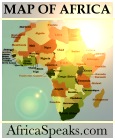Sadc unveils aid package
Posted: Monday, December 22, 2008Herald Reporter
December 22, 2008
THE Southern African Development Community yesterday launched the Zimbabwe Humanitarian Development Assistance Framework in Harare to provide agricultural development and humanitarian assistance as countries in the region have stepped up the delivery of agricultural inputs and drugs to fight cholera.
In an interview after the launch of ZHDAF, Sadc executive secretary Dr Tomaz Salomao said they had made proposals to the Government on how the facility was going to help Zimbabwe and to also get feedback from stakeholders.
"We are here to launch the initiative and to find out how far the humanitarian assistance can be delivered," he said.
He said between December 8 and 9, a South African delegation — together with the representative of the executive of Sadc — held meetings with various stakeholders in the country.
The purpose of the meetings was to consult with them on the modalities of addressing the agriculture and humanitarian challenges facing the country.
Dr Salomao said they later discovered that two areas needed to be covered and this was agriculture and the cholera outbreak.
"The team realised that under the current situation, we cannot address the humanitarian assistance, if we don't address cholera.
"We are, however, already on the ground, in terms of cholera. The situation is difficult but we are receiving support from countries such as South Africa, Botswana, Namibia and Tanzania among others," he said.
He said they have also put in place mechanisms that would be chaired by Sadc.
"We have also agreed on how, along the borders, Sadc member-states can work together and assist each other, especially on cholera," said Dr Salomao.
On agriculture, Dr Salomao said they had received a report yesterday that South Africa had just delivered seed and fertilizer worth more than 300 million rand.
"Our appeal is that member-states are welcome to assist and we are doing this to assist our fellow Zimbabweans to overcome the challenges they face.
"It's clear that we cannot fail. Africa cannot fail on this in assisting Zimbabwe and the people. This is a region of solidarity and when you are facing difficulties, you have to encounter it," he said.
Director-General of Foreign Affairs in South Africa Dr Ayanda Ntsaluba said he was part of the team that recently visited Zimbabwe.
"The main interest was to try and get a sense of what needs to be done in Zimbabwe and any form of assistance that can be provided.
"It was clear that there was some support but the question was what can be done by Sadc," he said.
Dr Ntsaluba said the Sadc initiative was to invite assistance from other member-states and that the idea was that each country should do what it can to assist Zimbabwe.
He said last Wednesday, they had forwarded a list to member-states, with areas that needed assistance in Zimbabwe and some countries were beginning to respond.
"The commitment of Sadc is not to intervene but to assist Zimbabwe to get it back where it was," said Dr Ntsaluba.
Chief Secretary to the President and Cabinet Dr Misheck Sibanda, Zimbabwe's Ambassador to South Africa Cde Simon Khaya Moyo, Secretary for Industry and International Trade Retired Colonel Christian Katsande, South Africa's ambassador to Zimbabwe Dr Mlungisi Makhalima and other senior Government officials attended the launch which was held at the South African Embassy yesterday.
The delegation was taken to a warehouse in Msasa where 160 tonnes of maize seed, 44 tonnes of sorghum and 55 tonnes of cowpeas received from South Africa are currently stored.
Six more trucks from South Africa are at the border awaiting instructions from the Government to deliver the consignment from the neighbouring country.
Tanzania on Saturday joined other African states that have responded to Zimbabwe's call for assistance in fighting cholera and improving the situation in hospitals by donating 41,5 tonnes of drugs and water purification chemicals.Printer friendly version
Send page by E-Mail

Previous Page | Zimbabwe Watch | Historical Views | Home
NOTICE: All articles are the copyright property of the writers. In accordance with Title 17 U.S.C., section 107, some material on this site is provided without permission from the copyright owner, only for purposes of criticism, comment, scholarship and research under the "fair use" provisions of federal copyright laws. Visit: http://www.law.cornell.edu/uscode/17/107.shtml for more details. If you wish to use copyrighted material from this site for purposes of your own that go beyond 'fair use', you must obtain permission from the copyright owner.










